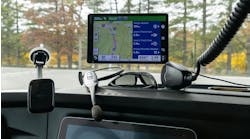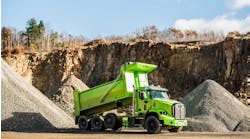Editor’s note: This is the third part of a series on how shippers and carriers are working together in the modern freight world. Read Part 1, Part 2, Part 4 and Part 5.
There’s an emerging opportunity for carriers and shippers to streamline and enhance their working relationships via technology, according to a recent DHL report on supply chain trends.
“The biggest opportunity is in the emergence of digital freight platforms that create online marketplaces that quickly and efficiently connect shippers with carriers, streamlining processes, optimizing costs and expanding the available options,” DHL Supply Chain North America observes.
Digital freight matching and automated load-tracking moves the concept of collaboration right to the starting gate for shippers and carriers. It requires a high degree of trust to share information about capacity, available driver hours, vehicle status, location, and so on in real time, even when the benefits can be extremely tempting.
Many shippers and carriers are choosing to work through third-party logistics service providers (3PLs) to manage business in this new, highly automated online, freight-matching, load-tracking marketplace. It is no wonder, therefore, that logistics service providers are among the earliest adopters of automated load-matching solutions. Their business model is all about managing the working relationship between shippers and carriers, so, in many regards, they have as much or more skin in the game as any other supply chain entity.
Logistics provider, Choptank Transport, for instance, recently announced that the company has standardized on the digital freight-matching and automated load-tracking platform from Trucker Tools. “Size and how fast you can scale is an important aspect of survival in the brokerage industry,” noted Geoff Turner, Choptank’s founder and CEO in a recent press announcement. “We felt a sense of urgency to adopt effective, digital technologies to make our brokers more productive…and respond faster and more accurately to customer needs.”
Trucker Tools is a mobile smartphone application for drivers with a load-tracking capability. Dubbed “Smart Capacity,” it was launched in 2013. Turner said that he believes the logistics providers who are the easiest to work with and help carriers run continuously and get regular loads and reloads are the ones who will be successful and grow. “Digital enabling technologies will accomplish this,” he predicts.
For shippers, according to Turner, the value of a platform like Smart Capacity and a carrier network connected via a smartphone mobile application is the peace of mind gained from knowing where their freight is and having more confidence about time of arrival. “Those [carriers] who embrace tracking are going to have the first dibs [sic] at the best freight. The guys who don’t want to be tracked won’t get the best loads,” he said.
“At the end of the day, technology aside, this is still a relationship business,” Turner observed. “People want to work with those they trust, who do what they say, and prove they have your back.”
This is the third part of a series on how shippers and carriers are working together in the modern freight world. Read Part 1, Part 2, Part 4 and Part 5.



